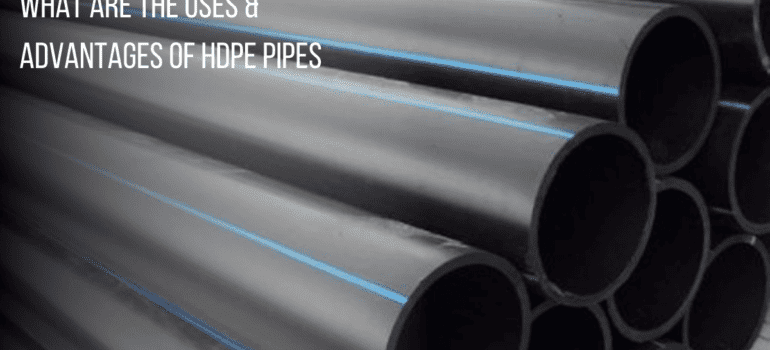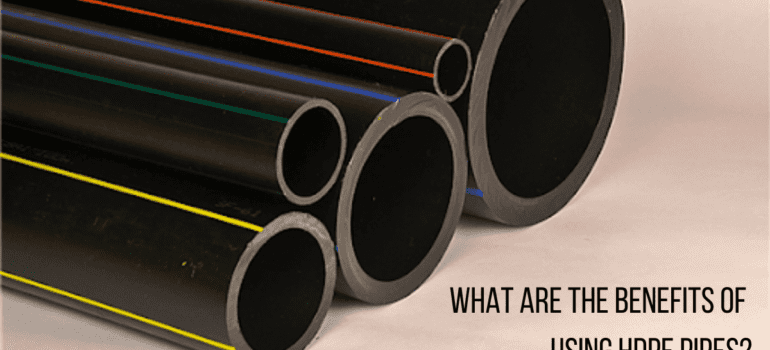What are the Uses & Advantages of HDPE Pipes
HDPE pipes are renowned for their high tensile strength, flexibility, durability and lightweight. Over the years, these pipes have been used for various municipal and industrial water applications. These pipes are even more environmentally friendly thereby making them more favourable as compared to their other counterparts. These pipes are popular for their lighter weight as compared to iron or galvanized pipes and also because it has corrosion and chemical resistance properties. These pipes are non-toxic, chemical and corrosion resistant, and ensure a long lifespan. Also, the top-quality HDPE pipes from top HDPE pipe manufacturers and suppliers ensure zero leak rate.
As these HDPE pipes are lightweight, it is easy to install and transport. These are also easy to repair as the damaged portion of the tube can be cut, and a new pipe can be connected through both ends. Take a look at some of the major properties of HDPE Pipes:
Properties of HDPE pipes
- HDPE pipes can resist many solvents, chemicals, and acidic environments
- HDPE pipes have high strength and flexibility and are much lighter in weight.
- These pipes are resistant to impact and that is what makes them a favourable choice for large industrial projects.
- Superior quality HDPE pipes have a long life span of 50-100 years
Uses & Advantages of HDPE pipes
- HDPE Pipes are easy to handle and hassle-free to install. Its density is way lesser than steel and also does not demand any heavy lifting equipment during the time of installation.
- These pipes require fewer fittings and can be welded into seamless leak-free pipes thereby reducing the expense of labour and installation.
- One of the finest quality of HDPE pipes is that it features chemical and corrosion resistance. It offers brilliant corrosion resistance to corrosive, acids, bases and salts and remains unaffected by fungi and bacteria.
- DPE pipes are heat fused to form a strong joint and this offers significant installation advantages when compared to traditional pipes.
At Bharat Polymers, our HDPE pipes have been tested and proven effective for aboveground, surface, buried and floating applications. All our HDPE pipes are available in different sizes, colours, dimensions and lengths. Our HDPE pipes are popularly known for their applications in water supply, potable water distribution, sewage transportation, sprinkler irrigation systems and so on.



